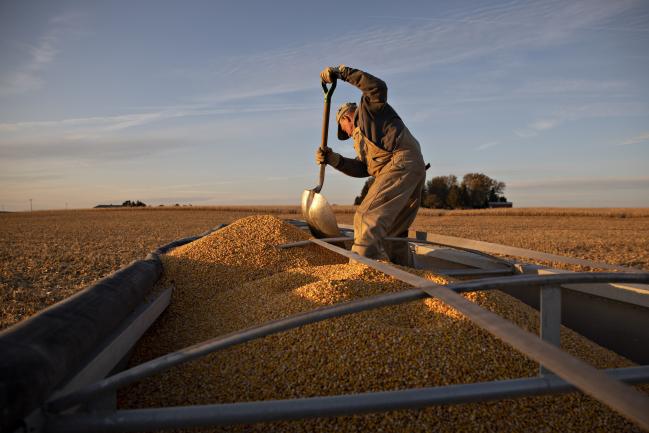
A growing number of countries are signing pledges to resist export controls and other barriers to the movement of food and other necessities during the Covid-19 pandemic. But some countries are leaning in the other direction.
They’re just a few examples, and as Bloomberg’s Isis Almeida and Agnieszka de Sousa report this week, there are no clear signs the trend that will grow more widely. But wheat prices in Chicago have rallied in the past week on hoarding concerns, a gentle reminder that bread has emerged throughout history as a symbol of despair when supplies run low and people get hungry.
So what’s happening raises a question: Is this the start of a wave of food protectionism that will further disrupt supply chains and trade flows?
“Given the problem that we are facing now, it’s not the moment to put these types of policies into place,” said Maximo Torero, chief economist at the UN’s Food and Agriculture Organization. “On the contrary, it’s the moment to cooperate and coordinate.”
The crisis has forced many governments to reevaluate their domestic food stockpiles. India says it will have enough grain stockpiles to feed its poor for at least a year-and-a-half as reserves. China, the world’s biggest producer and consumer of rice, has revamped its pricing policy for the staple, and pledged to buy a record amount from this year’s harvest.
Despite images of some empty grocery shelves and panicked shoppers, global warehouses are stuffed with food. But as the virus complicates shipping logistics around the world and slows commodity exports, the question becomes whether food nationalism catches on and nations add the complication of keeping supplies for themselves.
As UN World Food Programme Chief Economist Arif Husain put it in a recent article online, “the economic consequences of this disease could end up hurting more people than the disease itself.”
Charting the Trade Turmoil
The European Union, the world’s biggest trading bloc, unblocked the membership path for North Macedonia and Albania, restoring its Balkans enlargement strategy after overcoming a French barrier.
Today’s Must Reads
Bloomberg Analysis
©2020 Bloomberg L.P.



